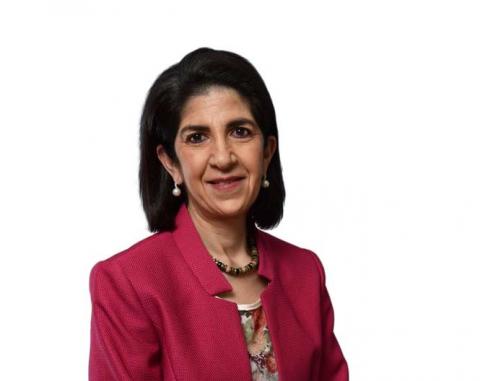On 11 March 2020, the World Health Organization declared COVID-19 a pandemic. A few days later, CERN went into safe mode. Today, the Laboratory is still far from being the hive of activity and human interaction that we all crave, with a large fraction of the personnel still working from home.
As a consequence of the pandemic, the March 2020 CERN Council Session proved to be a harbinger of things to come. We were reminded of this two weeks ago as we marked a year of online Council meetings. Few of us thought 12 months ago that we’d still be in a similar situation in March 2021. Those of you who were able to attend yesterday’s online meeting have already heard news from the Council, had an update on progress in Long Shutdown 2 (LS2) and the upgrades to the accelerators and experiments, and learned about how we are continuing to adapt our measures to the still evolving situation. Those who could not attend can find the recording here.
The year since the pandemic was declared has been like no other. We have all had to adapt our personal and professional lives beyond recognition, and some of us have suffered the consequences of the pandemic directly. This sombre milestone is an occasion for us to pay our respects to the victims of the virus and to think of those who have lost family or friends.
One year on, it is also an occasion to reflect on what has been achieved. If we can afford ourselves a little optimism, it is because of science, and the value system that science embodies. Vaccines have been developed, undergone clinical trials and been deployed on a massive scale on a timescale that would have been unimaginable just 12 months ago. We have seen scientists take centre stage, commanding great levels of attention, and there has been unprecedented global collaboration to tackle the pandemic. If, as we all dearly hope, the progress that has been made is to be sustained, we must strive to ensure that science retains this position in society: COVID-19 is just one of many challenges facing humanity today.
At CERN, our science is far removed from epidemiology and vaccine development, but we have nevertheless played our part. It was both humbling and a source of pride to see the community rise to the challenge, with all the activities coordinated by the “CERN against COVID-19” task force. Thanks to your selfless efforts, CERN made a difference through initiatives ranging from producing sanitiser gel and face shields to developing an advanced low-cost ventilator to providing computing resources to researchers engaged on the front line of the fight against the virus.
Right from the start, we have made the protection of our personnel and a safe working environment for those who cannot telework our top priority. At the same time, we have applied a scientific approach to everything we have done. CERN’s measures and procedures have evolved as evidence on the spread of the virus has accumulated, and they have always been based on the advice of medical experts and authorities.
This approach allowed us to make great progress in 2020 under safe conditions. Although some delays were inevitable, the work of LS2 proceeded well, allowing the accelerator complex and the experimental programme at the injectors to resume operation. Last month, an important milestone was reached as the keys to the LHC were symbolically handed back to the operations team, which is now readying the machine for restart. 2020 also saw a constant flow of beautiful physics results from across the full spectrum of CERN’s experimental programme.
I wish to take this opportunity to thank you all wholeheartedly for your commitment to CERN’s activities, your compliance with the measures on site, and your patience and support as we adapt, and will continue to adapt, to the evolving situation. My gratitude goes also to all the people and services who have been working incessantly over the past year to deploy the necessary infrastructure and tools to protect the health of the personnel on site and to support everyone from the CERN community who has had administrative, logistic, contractual or other problems.
There is no doubt in my mind that this is part of what makes CERN what it is, and what makes science science. Our value system is based on knowledge and scientific evidence, shared challenges and solutions, collaboration, solidarity, mutual trust and respect in order to plot the right course for all. As we reflect on a painful year gone by, we can also allow ourselves a moment of pride at the way our community has come through.

